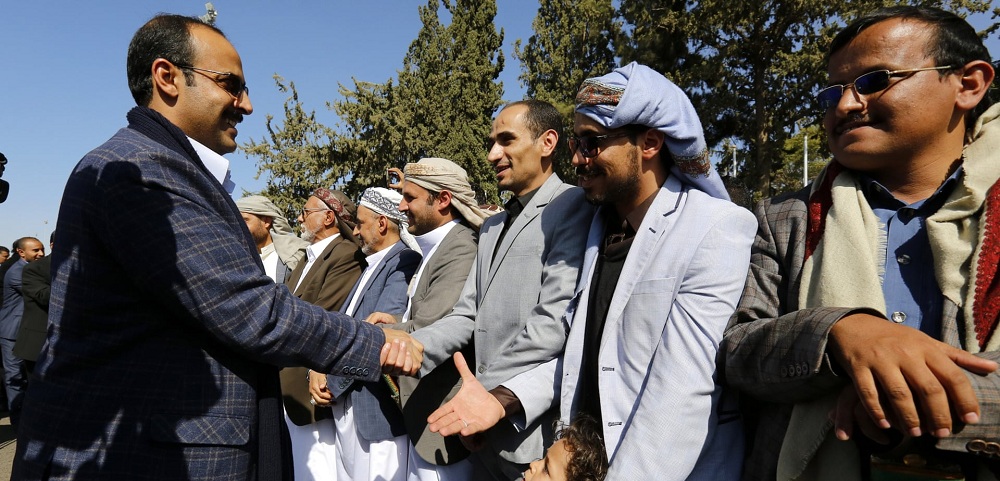Alwaght- A fragile truce was secured after weeklong negotiations in Sweden between Ansarullah resistance movement and Saudi-backed government of resigned president Abd Rabbuh Mansur Hadi.
The rival parties agreed on Thursday to cease fighting for the vital port city of Hudaydah and withdraw their troops.
During the talks, Martin Griffiths, the UN special envoy to the Yemen peace process, revealed parts of the UN-drafted document for ending the war in the country in a bid to prepare the ground for a political transition period. He said that the talks about the security and political issues as well as the transition period will be within a proposed peace package.
He maintained that when it comes to the military conflict, the document emphasizes on an armistice to the intra-Yemeni war as well as the Saudi-led aggression on the country. But the UN-presented peace roadmap carries a set of ambiguities that leave its success and Yemen future in uncertainty.
Ambiguity surrounding the anti-Yemeni coalition
The details of the proposed package look quite ill-defined. They fail to make clarifications on highly important issues like how the war of the Saudi-led coalition, which launched its aggression in March 2015 under the ruse of supporting the resigned Yemeni President Abd Rabbuh Mansour Hadi, should end. It also fails to specify the legal status of Arab alliance in Yemen under the truce.
To put it differently, the document which Griffiths claims will help end the Yemeni crisis only contains an array of one-sided demands and pre-planned steps. It fails to include specifications on the status of the war-affected people, compensations to the victims, and legal actions against Saudi Arabia and its allies as aggressors.
These uncertainties signal absence of a guarantee that the Saudis and Emiratis will not renew their attacks on their neighbor after the cessation of fire. There are fears that despite the initial agreement in accordance with the UN roadmap, Saudi Arabia and the UAE after a couple of months will launch a new military campaign against Yemen.
With this in mind, an armistice in the war-torn nation without a guarantee of permanent non-intervention of the foreign forces will be extremely fragile. In any future initiative, a guarantee to deter further Saudi and Emirati military intervention should be brazenly put into the final document.
Seeking Ansarullah impairment
Furthermore, the Griffiths roadmap appears to ask Ansarullah, the movement leading the revolution, and the revolutionary government in Sana’a to take unilaterally binding actions. In his press conference Griffiths said that according to the initiative, there will be a timetable for Ansarullah exit from their bases under the supervision of a special committee. There will be, he added, a mechanism preparing the ground for the movement to hand over its heavy weapons, including arms and drones, to the forces of home-unrecognized president Mansour Hadi.
Ansarullah is a key part of the Yemeni deterrence in the face of foreign aggression. Over the past four years, the movement showed great potentials in preventing the Saudi and Emirati aggressors from seizing the country. With regard to Ansarullah deterrence, demanding the movement to hand over its highly effective weapons only discloses an aim to cut its strength in the deterrent areas like the missile power.
Some analysts assert that the UN initiative with its aim to undermine the popular defense and Ansarullah movement only seeks to ease Saudi Arabia’s major concerns rather than stabilize Yemen politically and militarily.
Tying the humanitarian aids to political conditions
The UN document suggests war halt in Hudaydah, adding that Ansarullah remove their forces in response to cessation of attacks by pro-Hadi forces. A military and security committee, the document says, will ensue. The roadmap also ties the prisoner swap to the Ansarullah accepting of the political conditions, yet another sign the initiative is biased. Any move to stop the aggression to improve the humanitarian conditions should be accomplished unconditionally. The pro-Hadi, Saudi-backed negotiators insist that the resistant Yemeni forces pull out of Hudaydah and Taiz, both major provinces in southern Yemen, and allow them to fill their place. Ansarullah rejects the demand.
Griffiths roadmap proposes a transition period with the participation of all of the Yemeni sides including the government. It asks all sides to respect the law and help remove all of the obstacles ahead of the government organs’ work . At the end of the transition period, it proposes, constitution referendum and parliamentary and presidential elections will be held.
The document, however, does not make clear how the power will be shared among the intra-Yemeni parties at the transition period. The transition cabinet will be decisively important to the country’s future. With regard to the fact that Mansour Hadi and his cabinet, supported by Saudi Arabia, the West, and the UN, have the least legitimacy and acceptance among the Yemenis, the transition should not undermine Ansarullah’s political position. But the UN envoy’s plan has no such consideration and mainly focuses on the realization of the resigned government’s demands. This comes while in the capital, north, and south of Yemen, the biggest popular support goes to Ansarullah which for four years resisted Saudi aggression. So, restoration of power to Mansour Hadi team will only mean further discontent and going back to square one.
All in all, despite rays of hope about a possible end of the largely asymmetrical and inhumane Saudi war against the Yemenis, the details of the initiative show that Riyadh delegation strives to get what it could not get through years of war and foist its conditions on Ansarullah. If this is the aim and the Saudi-backed delegation insists on its unacceptable demands, it is highly likely that the negotiations will not yield any final agreement.



























